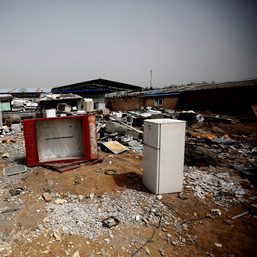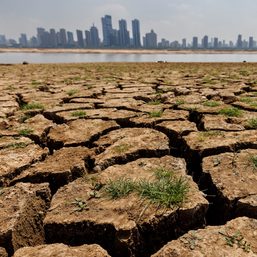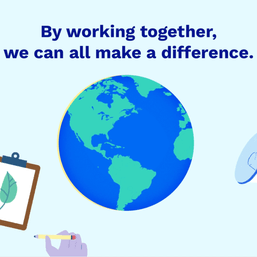SUMMARY
This is AI generated summarization, which may have errors. For context, always refer to the full article.

Energy producers gathered in Abu Dhabi following the United Nations climate talks called on Monday, November 15, for greater inclusivity that would see more investment in hydrocarbons for energy security as they work to reduce emissions while developing their economies.
The world could not “simply unplug” from hydrocarbons and the oil and gas industry needed to invest over $600 billion a year until 2030 just to meet expected demand, said Abu Dhabi National Oil Company (ADNOC) chief executive Sultan al-Jaber.
He was addressing the start of the ADIPEC oil and gas forum, at which the energy minister of top oil exporter Saudi Arabia stressed that climate efforts should provide equal focus on energy security and economic growth in developing countries.
The COP26 talks in Glasgow ended on Saturday, November 13, with a deal that for the first time targeted fossil fuels as the key driver of global warming.
The Organization of the Petroleum Exporting Countries (OPEC) had defended a future role for fossil fuels at the talks, arguing that the world could slash greenhouse gas emissions without moving away from oil and gas.
“To be inclusive you have to look at first emissions, not resource, two it must be all greenhouse gases, it must be all sectors,” Saudi Arabia’s Prince Abdulaziz bin Salman al-Saud said. “We have to be mindful of national circumstances.”
Advocates of oil, gas, and coal argue that technologies such as carbon capture and sequestration – in which emissions are captured and stored underground – can allow economies to keep burning fossils.
Climate activists reject that, saying such technology is expensive, unproven at scale, and only provides cover to polluting industries to continue operating.
OPEC Secretary General Mohammad Barkindo said on Monday the conversation “is gradually being taken over by emotions” and hoped upcoming COP summits in Egypt in 2022 and the United Arab Emirates in 2023 would take a holistic approach.
ADNOC’s al-Jaber said the Glasgow summit “on balance, was a success” but also urged greater pragmatism, saying a successful energy transition required hydrocarbons.
“We cannot simply unplug from the energy system of today. We cannot just flip a switch.”
He said ADNOC was expanding its carbon capture and storage capacity from 800,000 tons per year to 5 million, and as of January, would use nuclear and solar for its grid power. – Rappler.com
Add a comment
How does this make you feel?
![[OPINION] Fossil fuel debts are illegitimate and must be canceled](https://www.rappler.com/tachyon/2024/04/IMHO-fossil-fuel-debt-cancelled-April-16-2024.jpg?resize=257%2C257&crop_strategy=attention)
![[WATCH] John Kerry: You can’t solve climate crisis without addressing ocean’s challenges](https://www.rappler.com/tachyon/2023/12/cop28-united-states-john-kerry-december-2-2023-reuters-001.jpg?resize=257%2C257&crop_strategy=attention)





![[OPINION] Momentum for climate justice](https://www.rappler.com/tachyon/2022/01/TL-Odette-Climate-Justice-January-21-2022-Part-2.jpg?resize=257%2C257&crop=82px%2C0px%2C720px%2C720px)

![[ANALYSIS] After Glasgow: What’s next for climate?](https://www.rappler.com/tachyon/2021/12/cop26.jpg?resize=257%2C257&crop_strategy=attention)
![[ROUNDTABLE SERIES] Powering up: Building a bright future with energy security](https://www.rappler.com/tachyon/2024/04/Omnibus-with-guests.jpg?resize=257%2C257&crop_strategy=attention)

![[OPINION] What is the ‘endgame’ for BBM’s gas transition?](https://www.rappler.com/tachyon/2024/03/IMHO-Marcos-Endgame-gas-transition-March-19-2024.jpg?resize=257%2C257&crop_strategy=attention)
![[ANALYSIS] Panay blackouts](https://www.rappler.com/tachyon/2024/03/panay-blackouts.jpg?resize=257%2C257&crop=277px%2C0px%2C720px%2C720px)
There are no comments yet. Add your comment to start the conversation.